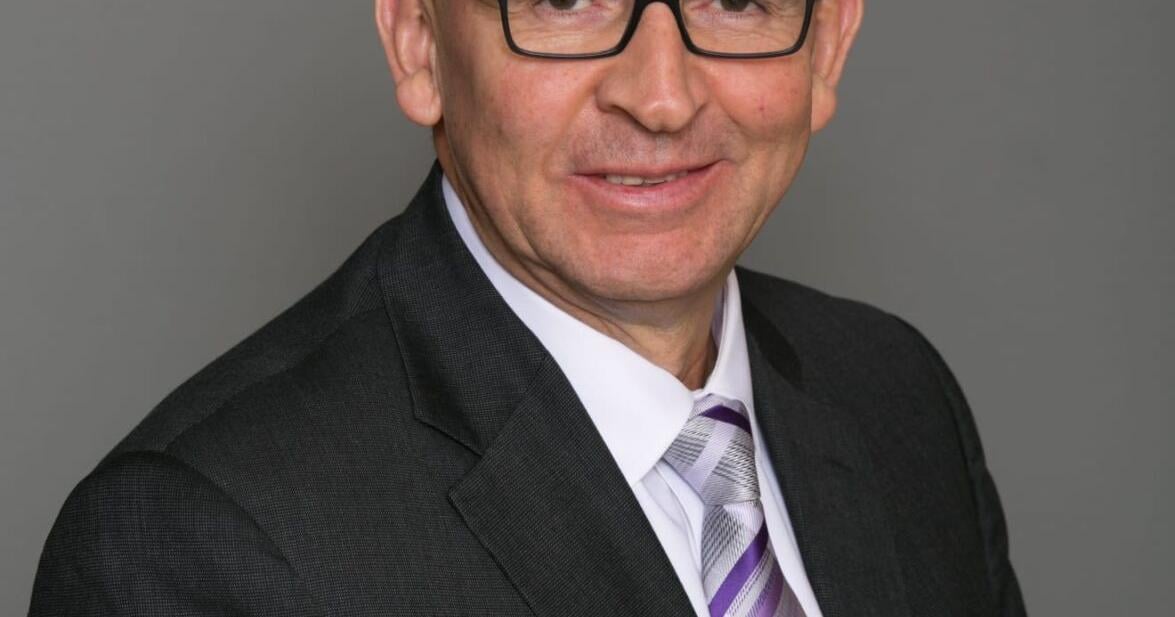
For too long, many people have viewed Alzheimer’s disease and other types of dementia with a sense of uncertainty and confusion.
Those who have been touched by it, either as individuals or family care partners, may have felt like they were dealt a bad hand of cards — one with life-changing consequences.
These days we know that we have more control than previously thought — to reduce our risk, to detect symptoms early, and to make plans that improve quality of life for the person and for their loved ones.
It starts with something surprisingly simple: a conversation.
Stigma often has created a barrier to open discussions of this topic. Stigma and embarrassment can stop people from talking openly with their family, friends and health care providers to limit their likelihood of getting dementia or to manage a diagnosis together.
We get it: Thinking about dementia can bring up painful emotions including fear, frustration, and hopelessness. Even as we work toward better treatment options for symptoms, we know there is no cure yet.
There is hope.
Everyone can take steps to reduce their risk of Alzheimer’s disease and other types of dementia, like talking openly with loved ones and adopting healthy habits. Having conversations about dementia can help improve the lives of those who may be experiencing symptoms or concerned about their brain health.
That’s the focus of TalkAboutDementia.org, a new public awareness campaign from the Colorado Department of Public Health and Environment.
In Colorado, more than 90,000 older adults, age 65 and older, live with Alzheimer’s disease, the most common form of dementia. Many more are affected as care partners and loved ones.
Black/African Americans, Latinos and American Indian/Alaskan Natives are disproportionately impacted and these groups will see the largest increases in dementia in the coming decades.
Information is power for all of us.
New research highlights that 45% of dementia cases could be prevented or delayed by addressing risk factors.
Prevention steps include:
• Addressing hearing loss and vision impairment
•Protecting against head injuries
Receive updates from our editorial staff, guest columnists, and letters from Gazette readers. Sent to your inbox 12:00 PM.
Success! Thank you for subscribing to our newsletter.
{ console.log(“SUCCESSFUL POST”); subscribeSuccess(); }); } ]]>
• Staying physically active and eating healthy foods
• Quitting tobacco
• Limiting alcohol consumption
• Preventing and managing chronic conditions, especially high cholesterol, high blood pressure and diabetes
• Getting enough sleep
• Staying socially engaged
It’s time we started thinking about brain health in the same way we think of supporting the health of other parts of our body like our heart, lungs and bones.
Our choices can support our wellness. Our choices can reduce the chance of dementia among us and our loved ones.
Another key is staying alert to potential signs of dementia.
Dementia is not a normal part of aging. Sadly, half of dementia cases might go undiagnosed. Early detection can improve the progression of the disease. Early diagnosis also allows for treatment and empowers the person to play a role in care decisions and planning for their future.
When we talk to our health care providers about our concerns, we can make sure we get screened. Health care providers provide the expertise and diagnosis, but we can help by starting the conversation with them.
The Colorado Department of Public Health and Environment campaign called TalkAboutDementia.org is a product of a five-year state plan to address the impact of dementia on Coloradans — in particular on those populations disproportionately impacted by the disease.
TalkAboutDementia.org provides practical information, and it offers links to other helpful resources. It’s a great place to start learning more about brain health and dementia.
This information can help start the conversation, and that’s the first step to better outcomes. It is time for us to embrace this vital discussion and Talk About Dementia.
Edgar Carreno, an Alzheimer’s Association volunteer, served on the advisory committee for the Colorado Alzheimer’s Disease and Related Dementias State Plan. Hillary Lum, M.D., Ph.D., is a geriatrician and dementia care researcher at the University of Colorado School of Medicine. Both have supported family members with dementia.
Edgar Carreno, an Alzheimer’s Association volunteer, served on the advisory committee for the Colorado Alzheimer’s Disease and Related Dementias State Plan. Hillary Lum, M.D., Ph.D., is a geriatrician and dementia care researcher at the University of Colorado School of Medicine. Both have supported family members with dementia.




